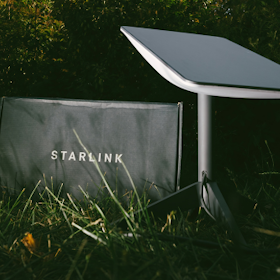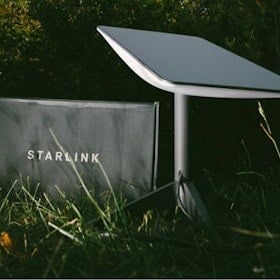
Article Summary
As more Canadians move their workspace into their homes, it’s easier than ever to be casual with sensitive data. Most Canadian consumers feel their data is less secure than just 10 years ago according to a recent study by Shred-it. Follow these four steps to secure your home office and avoid privacy breaches that can destroy your company. WhistleOut shows you how to secure your home office, computers and internet connection. We also help you prepare for the day when your company gets hacked.
A report released by Shred-it highlights growing concerns that consumers have with information security. Shred-it specializes in document destruction and workplace privacy policies that protect companies from privacy breaches. The company's 10th annual Data Protection Report (DPR) shows that 55% of Canadian consumers feel their personal data and information is less secure than it was just 10 years ago. Although a data breach can cost a company on average more than $5 million, creating a secure workspace in 2020 is more difficult and expensive than ever.
When the coronavirus pandemic hit Canada last March, most of the country shut down economically. Many offices moved offsite and into employee living rooms. At first it was considered a temporary measure, but all signs point to mid-2021 before we can head back to our offices full time.
A data breach might only be a hypothetical situation for you right now, but if it ever becomes reality then your small business might not survive. The study found that 24% of consumers would stop doing business with a company where security has been compromised. Can your company afford to lose that many customers? As office spaces move into home spaces, whether it be a home office or a kitchen table, focus on these areas when securing your place of work: Prepare your home office, secure your computers and lock down your network. If you're a small business owner or corporate executive, you may also want to consider cyber insurance.

Preparing Your Home Office
Even before you turn on your computer or connect to the internet, private information must be secured. You may not give it a second thought, but imagine how you'd feel if your financial advisor had your personal information just lying around their living room?
Create A Secure Disposal Policy
When it comes to policies for storing and disposing of confidential documents, 62% of corporations and 40% of small businesses have a policy that is followed by all employees. However, there are still many companies that have a policy that is not strictly adhered to. More than one-third of small businesses surveyed had no policy for disposing of confidential printed documentation. Your company should provide such policies in the form of documented process and training. Even if they don’t, you should have a personal process that keeps important information safe and secure.
Secure All Printed Documents
Even though the world is quickly moving to digital-only encounters, 77% of corporations and 63% of small businesses in Canada report that employees print documents that need to be signed or reviewed. More than a third of those companies report that employees have left confidential documents out in the open. A locking file cabinet deters casual browsers from seeing important material and can cost under $100. Overly sensitive material may require a safe which can cost a few hundred dollars or more, but the cost of a data breach is so much higher.
Shred and Recycle Old Documents
The report commissioned by Shred-it heightens awareness of the potential for data breaches while employees work from home. To that end, the company’s secure shredding service offers pickup disposal services — including at your home — if you have several boxes of material. For smaller jobs, we recommend you find the closest of Shred-it's more than 200 of drop-off points for shredding services across most provinces. Most office supply stores also have secure document disposal services, but you may also consider buying a personal cross-cut shredder which can be cost less than $100. You should have no trouble recycling the confetti made by a cross-cut shredder, but check with your municipality to see if staples can be included; you may need to remove and dispose of them in the garbage.
Move Your Workspace Away From Windows
For most people, a desk right beside a bright window can make the 9-to-5 workday a breeze. However, you should be aware what else might be visible. We’re not saying someone will peak in your window while you’re working, but when you’re away (or sleeping) then close the blinds. A laptop computer close to an unlocked window can be gone for hours before you realize it.

Secure Computers and Smart Devices
Ask any IT professional and they’ll tell you the most common security breaches happen between the chair and keyboard. Bad habits by personnel can easily result in a data breach. One in five employees use the same password on multiple accounts, and one third save passwords to a list (or sticky note) on their computer. Most corporations and many small businesses train employees to recognize cyber-attacks, yet countless remain unprepared. We recommend you take some precautions with your digital equipment now to minimize your risk later.
Encrypt Your Desktop, Laptop and iPhone
Think of drive encryption like locking your data in a safe and only your computer knows how to unlock it. The hard drive may be removed and put in another computer, but the data cannot be read without the key. Most computers – and even smartphones – automatically encrypt storage during initial set up. Here’s how to check for drive encryption on your computer or smartphone and enable it if necessary:
- Microsoft Windows BitLocker encryption
- Apple MacOS FileVault encryption
- Android smartphones automatically encrypt on-device storage, but you may need to also encrypt data stored on external MicroSD storage
- Apple iPhones and iPads have Data Protection enabled by default, but you should also enable encrypted backups
Password Manager and 2-Factor Authentication
Memorizing all your passwords becomes more difficult with every new email address, streaming service or coffee rewards program you get. A password manager app like LastPass or 1Password stores all those cryptographic passphrases behind one password (or fingerprint scan). Choosing complex passwords is always a good idea, but now you won’t even need to remember them since they’re stored in a secure vault on your smartphone.
Many corporations employ 2-factor authentication using a digital key or token. More commonly, your smartphone can act as a second key to prevent and alert you about malicious attempts to access your account. Quite simply, even if someone unauthorized has access to your username and password, they can’t get access without the second form of authentication. The code is usually a short numerical code that changes every minute.
Enable Find My Device and Remote Wipe
When Apple first added Find My iPhone to mobile devices, a lot of crooks got caught red-handed with stolen merchandise. The feature is now available on Android smartphones as well as MacOS and Windows 10 computers. Remote Wipe partnered with regular backups ensures that your data will not be compromised even if you never get your computer or cell phone back.
Software and Antivirus Updates
You can be forgiven for thinking this is already covered since many computers come with antivirus software built-in. However, software updates can fall weeks behind and anti-virus updates may be accidentally (or maliciously) disabled. Check right now if updates are automatically applied, currently up-to-date, and that your computer is configured to scan regularly for viruses.
Lock Your Computer
Before walking away from your computer, get in the habit of locking it. You don’t need a padlock since it only takes a second to software-lock your computer’s desktop and a few seconds to punch in your password once you get back. Locking your computer can be as simple as tapping Windows Key + L on Windows, Control + Shift + Power on Mac, or just close the lid of your laptop. Locking your computer prevents any unauthorized access to data on your computer. It also stops any toddler in your house from hammering the keyboard when you’re not around and sending that draft email you hadn’t finished yet. Trust me on that.

Secure Your Connection
Even before the COVID-19 pandemic made remote work the norm, more than half of small businesses had employees that worked from home. The opportunity to work from home will become even more important after the lockdown is over. Many tech companies like Shopify are shifting to permanent work-from-home policies for most of their staff. It’s more vital than ever that the invisible connection between the office and your business computer is secured.
Secure Your Internet Connection
At the core of your home internet is your modem and router. Both functions may be combined into one device, but some homes can use a separate Wi-fi router to provide wireless networking throughout the house. That Wi-fi doesn’t stop at your walls – your home network can be accessed from outside the building. Proper configuration and a strong password will keep unauthorized users off your network. This is an essential step in setting up your home office since sharing your Wi-fi doesn’t just give access to your internet connection but also every computer on your network. Many Wi-fi routers have smartphone apps to simplify managing your network and seeing who’s currently online.
Set Up a Virtual Private Network (VPN)
Many corporations require logging into a VPN (Virtual Public Network) while working remotely. A VPN sits between your computer and the internet and encrypts the connection. That way, even if someone can see the data coming from (or going to) your computer, they won’t be able to read it. Even if only using the internet for personal use, WhistleOut strongly recommends setting up a VPN (even a free VPN option) on any computer or smartphone that holds your personal information, emails, or financial data.
Avoid Free Wi-Fi Networks
Being stuck in the house for seven months takes its toll. You can be forgiven for grabbing the MacBook, heading to Starbucks and getting some work done, but don’t use their free wireless internet. Those networks might be secure, but you could accidently log onto a honeypot network designed to steal your data. Use your smartphone as a wireless hotspot along with unlimited data plans from Rogers, Bell and Telus. You’ll have access to loads of 4G and 5G data. Even if you burn through your wireless data cap, you can continue streaming unlimited data at slower speeds until the end of your billing period.

Invest in Cyber Insurance
There are a lot of expenses when running a business, so choosing to pay for yet more insurance can be a difficult decision. However, cyber insurance provides more than just financial support when there’s an attack on your digital infrastructure. If customer data is breached, you’ll be assigned a team to help mitigate the damage to your company’s image.
Although 70% of corporations surveyed have a cyber insurance policy in place, only 28% of small businesses could say the same. At a time when consumer confidence in data security is low, having a cyber insurance policy in place could mean the difference between recovery and bankruptcy.
Related Articles
Find Better Internet and Phone Plans
Hundreds of internet plans unpacked. All the facts. No surprises.
Internet Providers by Provinces and Territories
- Internet in Alberta
- Internet in British Columbia
- Internet in Manitoba
- Internet in New Brunswick
- Internet in Newfoundland and Labrador
- Internet in Northwest Territories
- Internet in Nova Scotia
- Internet in Nunavut
- Internet in Ontario
- Internet in Prince Edward Island
- Internet in Quebec
- Internet in Saskatchewan
- Internet in Yukon Territory



































